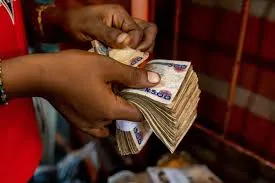
Currency Surge: How the Naira Gained Ground Against the Dollar
As of January 25, 2025, the Nigerian naira has shown signs of appreciation against the U.S. dollar in recent trading sessions. In the official market, the naira strengthened to N1,600.78 per dollar on Friday, October 18, 2024, from N1,660.49 the previous day, marking a gain of N59.71.
This positive movement occurred despite a decrease in foreign exchange transaction turnover, which fell to $350.72 million on Friday from $330.18 million on Thursday.
In the parallel market, however, the naira experienced a depreciation, weakening to N1,725 per dollar on Friday from N1,705 the previous day.
This divergence between the official and parallel markets highlights ongoing volatility in Nigeria’s foreign exchange landscape.
The Central Bank of Nigeria (CBN) has been actively implementing measures to stabilize the naira. Recent interventions include the introduction of the Electronic Foreign Exchange Matching System (EFEMS) in October 2024, aimed at curbing speculation and enhancing transparency in the FX market.
Additionally, the CBN has provided dollars to Bureau De Change operators at a rate of N1,590 per dollar to improve liquidity and meet the growing demand for invisible transactions, such as personal travel allowances, medical bills, and educational expenses.
Despite these efforts, the naira has faced significant challenges over the past year. According to the World Bank’s Africa’s Pulse report, as of August 2024, the naira had depreciated by approximately 43 percent since the beginning of the year, ranking it among the weakest currencies in Sub-Saharan Africa.
The report attributes this persistent pressure to heightened dollar demand driven by financial institutions, non-financial end-users, and money managers.
In summary, while the naira has recently shown signs of appreciation against the dollar in the official market, challenges persist, particularly in the parallel market. The CBN’s ongoing interventions aim to stabilize the currency and restore confidence in Nigeria’s foreign exchange markets.
